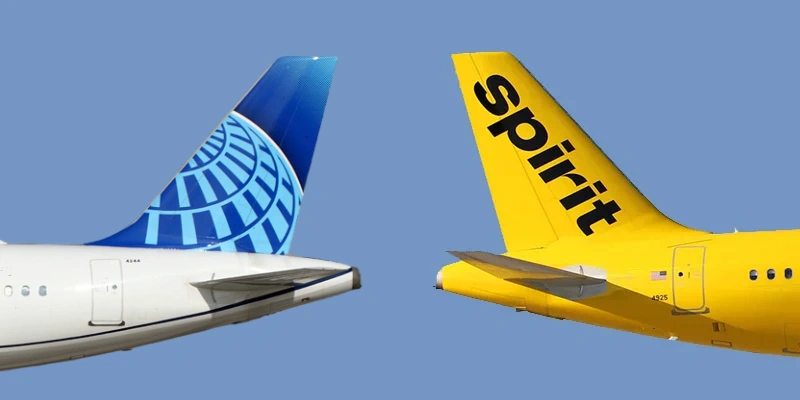Tensions between United Airlines and Spirit Airlines reached a new level this Tuesday when United’s CEO, Scott Kirby, openly questioned the viability of his competitor’s low-cost business model. The comment, made during the U.S. Chamber of Commerce’s Global Aerospace Summit in Washington, triggered an immediate response from the Florida-based airline.
“A Failed Experiment,” According to United
Kirby described the ultra-low-cost model as “an interesting experiment” that, in his opinion, has already failed.
“It seems unlikely that Spirit can keep flying because their customers don’t want to fly with them,” he stated.
The declaration raised alarms at a critical time for Spirit, which last month filed for bankruptcy protection for the second time in a year. The previous restructuring attempt failed to stabilize its finances, weakening its position in an increasingly competitive market.
→ Delta, United sued for selling windowless “window seats”
Spirit’s Immediate Rebuttal
Through a message posted on X, the company responded forcefully: “Our customers love our low fares and our premium products. Maybe that’s why United executives can’t stop talking about us.”
The airline dismissed Kirby’s predictions as “wishful thinking” and assured that it expects to remain operational “for many years to come.”
United’s Strategy: Seizing the Opportunity
Meanwhile, United has made a move to capitalize on the uncertainty. Last week, it announced the sale of tickets to 15 cities where Spirit currently operates, aiming—according to the company itself—to offer alternatives to passengers in case the low-cost carrier ceases operations.
Drastic Adjustments at Spirit
In an effort to reduce losses, Spirit has initiated a selective retreat from markets.
- It suspended service to 11 U.S. cities, including Portland (Oregon) and San Diego (California).
- It canceled the launch of its route to Macon, Georgia, which was scheduled for mid-October.
Despite these measures, the numbers remain concerning. In the last quarter, operating expenses reached $1.2 billion, representing 118% of its revenue for the same period.
Analysts: Costs Out of Control
Industry experts agree that Spirit’s real problem has been its inability to correct an inflated cost structure. This has limited its profit margins and weakened its ability to compete in a segment where price is the main attraction.
Related Topics
Lufthansa Under Pressure: Pilots and Cabin Crew Call for Strikes This Thursday
Lufthansa City Airlines Opens Frankfurt Base and Accelerates European Short-Haul Offensive
Ryanair Redefines Maintenance Strategy: Signs Multi-Billion Dollar Deal with CFM to Internalize Engine MRO Starting in 2029
Air Europa and Plus Ultra Announce Resumption of Flights to Venezuela
Plataforma Informativa de Aviación Comercial con 13 años de trayectoria.
